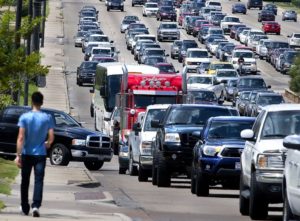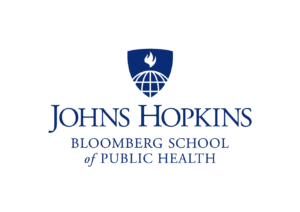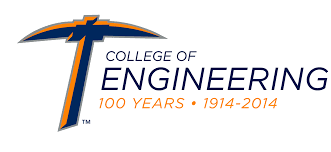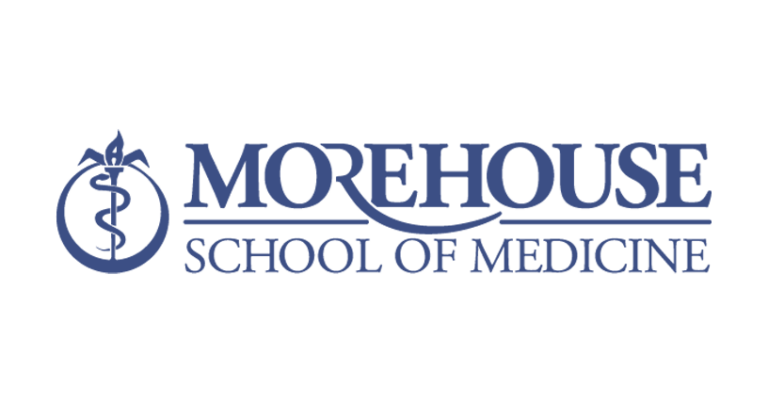By Aimee Breaux [email protected]

Mapping out the effect of air pollution on Americans is often done in two parts — transportation researchers do studies on vehicle emissions and health researchers do studies on conditions such as asthma and how brain development is affected. A new center run by Texas A&M aims to bring these two parties together.
Texas A&M and four other universities received more than $11 million from the Department of Transportation to fund The Center for Advancing Research in Transportation Emissions, Energy and Health, or CAR-TEEH. The center is one of 32 that received five years of funding in December to tackle problems related to the nation’s transportation needs.
CAR-TEEH brings together researchers from Texas A&M, Johns Hopkins University, Georgia Institute of Technology, University of Texas-El Paso and the University of California-Riverside.
Led by Joe Zietsman, Texas A&M Transportation Institute’s Environment and Air Quality Division head, these researchers are focused on providing insight on the “tailpipe to lung spectrum.”
Zietsman said representatives from the center have settled on six main projects in the past two weeks, including the creation of a data hub that stores transportation and emission information in the same spot as medical information.
“Traditionally, transportation professionals and health professionals haven’t really worked together, so this is kind of a new thing,” he said. “We in transportation have always worked on air quality problems knowing that it’s for health purposes, but we never quite closed the loop we call ‘tailpipe to lung.'”
Other projects include studies that look at how exposure to truck emissions affect drivers and how autonomous vehicles would impact emissions levels.
Wen-Whai Li, who is leading the UTEP team, said researchers from his campus are focusing on testing emissions on the U.S.-Mexico border.
“We want to look at the health impact on underserved communities due to traffic conditions,” he said.
Li said air pollution can cause a range of problems, from asthma to absenteeism in schools.
“The traffic-related air pollution traditionally has the most profound impact on human health because of the quantity of pollutants emitted and the relative close proximity between the source and the population — people live very close to the highway,” he said.
He said his team is particularly drawn to researching underserved communities because historically, air-pollution conditions tend to be worse for these areas.
“In El Paso, we have such an environment that we can conduct this study,” he said. “We expect the outcome to be able to be used by communities throughout the country.”
Each of the 32 University Transportation Centers have a speciality that addresses nationwide transportation needs.
Zietsman said Texas A&M has been involved in emissions research for a long time, and that all of the universities involved in CAR-TEEH were motivated to pursue research in the area from the start.
“What we figured out was that it’s an area that has never been pulled together — there was definitely a need for these two disciplines to come together,” he said. “And we also realized that we could put together a very strong team, covering the whole spectrum, from the vehicle, the emissions from the vehicle, the exposure and the actual health impact.”




